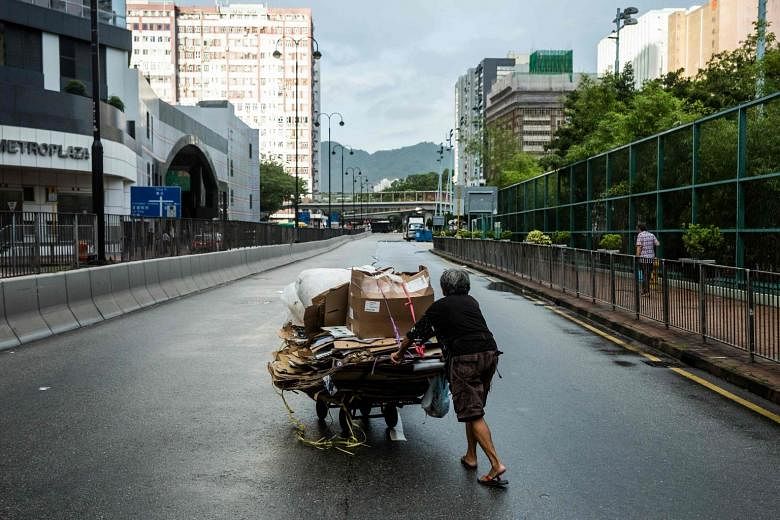HONG KONG (CHINA DAILY/ASIA NEWS NETWORK) - Hong Kong Chief Executive Carrie Lam Cheng Yuet-ngor reiterated in a recent forum that the top priority of her upcoming Policy Address would be housing.
That was hardly a surprise to anyone as the government has been preoccupied by tackling the acute housing shortage issue since years before Mrs Lam took the helm.
The public has been reminded over and over again of the importance of creating more land for building homes. They were told that the resulting increase in supply would bring down prices to levels that most families can afford.
Before submitting a report to the government, officials have let it be known that the just concluded public debate on land supply showed overwhelming support for reclaiming land from the surrounding sea.
This finding is consistent with the government's housing policy, which argues that reclamation is the least costly and time-consuming way to create land.
In her first policy speech last year, Mrs Lam signalled a fundamental change to the government's traditional housing policy. Her new approach calls for the building of subsidised housing to be sold rather than rented to families qualified under a means test.
That new policy is expected to remain unchanged despite questions raised by some economists and developers.
Critics argued that overly deep government involvement in the supply chain could seriously distort the prices of a large segment of the market for assets which are valued by many Hong Kong people.
There is really very little about the government housing policy and its impact on the property market that the public has not already heard about. What's more, there are issues which are equally important in the long term and are of great concern to the public.
Chief among those are the social and economic problems that are expected to become increasingly serious as the population continues to age at a fast rate.
In coming years, many more Hong Kong workers will retire or be approaching retirement age. Not many of them will have saved enough money to support them when they are no longer earning a regular salary.
The Mandatory Provident Fund (MPF) has long been written off as nothing more than a token social net that offers little security for old age.
The government is working hard to remove a provision that allows employers to offset a retiree's severance pay against MPF balance; that is a move in the right direction. But that's not going to make too much of a difference because of the low level of protection provided by the MPF itself.
To be sure, the government has greatly raised direct subsidies to the most needy persons and families. But handouts are not what most retirees want.
They want real security that can only be provided by a proper universal pension scheme available to every worker without the need of passing a means test, as proposed by the government.
Previous discussions on such a pension scheme failed to make any meaningful progress because the government had insisted on including a means test that was vigorously rejected by labour. The bar was set at a level that would disqualify the majority of workers from the proposed scheme.
Hong Kong's rapidly ageing population is expected to create nagging social and economic problems in the coming years.
The government's own projection puts the proportion of those aged 65 and above at 27 per cent of the total in 2033, up from 11.7 per cent in 2003 while the median age of the population is expected to increase to 49 years of age from 38 in the same 30-year period.
Mrs Lam has invited the public to participate by telling her what they expect from her Policy Address.
There is certainly a strong demand for the government to restart talks on a universal pension scheme in the hope of arriving at a consensus at a time when the public coffers are flush with cash surplus.
Of more immediate concern to the public are the recent developments, including rising interest rates and the trade war between the United States and China, that could slow economic growth and wreak havoc on the asset markets.
The government's resolve and capability in defending the currency is not in doubt. But worries about the contagion of the crisis that is troubling some developing economies, such as Argentina and Turkey, are real.
What the public wants most is a reassurance from the government of what will be the main engine driving economic growth in the coming year when exports are expected to fall and domestic fixed capital expenditure will taper off after completion of the mega public works projects.
If there is going to be an economic recession, the housing shortage will be one of the least concerns.
Mr Peter Liang is a veteran current affairs commentator. China Daily is a member of The Straits Times media partner Asia News Network, an alliance of 23 news media organisations.

